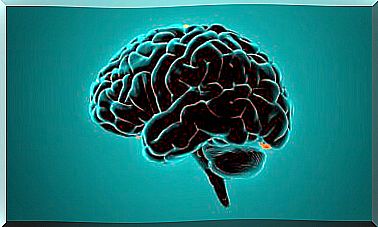Life Has Few Rewards And Punishments But Many Consequences

Our actions and even our thoughts generate consequences. Taking this approach is what allows us to take the reins of our own life with determination to create a beautiful design, and not to get carried away by the capricious ups and downs of destiny. Because in our day to day there are no rewards or punishments, what there are are consequences based on our acts or omissions.
John Green said in the youth book “Looking for Alaska” that people should be much more aware of the chain of consequences that result from our smallest actions. Appreciating it, realizing it, is not exactly easy. Many of us have been brought up under that fiercely behavioral paradigm, where we assume that sometimes it is enough to press the red button and avoid the blue button for things to go well, for life to reward us for itself.
However, the day to day does not know about red and blue buttons, life does not reward or punish. What there are are nuances, they are very fine strings on which it is enough to leave our breath for everything to vibrate, for everything to move and generate some kind of impact on our reality. Assuming our responsibility for each word spoken, each behavior, each void caused, omission, action or internalized thought is what allows us to have greater control over our reality.
.

Signs to interpret and consequences to assess
Terrence Deacon is a well-known neuroanthropologist who is currently a member of the department of cognitive science at the University of California, Berkeley. One of his most interesting books is “The Symbolic Species.” In it, he reminds us of that latent power that people have and in which we do not invest too much time or effort. We refer to our capacity for calm analysis, to think about the causes that make up certain events and anticipate the possible associated consequences.
Professor Deacon tells us that our daily lives are not made up of stimuli to react to, as behaviorists would say. Because in life we are not always given rewards or punishments based on what we do or stop doing . All around us there are “clues” that we must know how to interpret in order to generate an adequate response. To achieve this, we need our will and fine-tuned wisdom to give a logical and accurate meaning to the complex symbols that surround us.
For example, if when we arrive at work we see a colleague crying at his table, no one will think of going in search of the director to indicate that one of his employees “will not be very productive today . ” The most common thing is to first think about what should be the cause of their emotional state and then to reflect on how we can approach in the closest way to offer real support, useful help.

Professor Deacon also reminds us that we must be seekers of wisdom. For this, it is good to assume that we are fallible, that sometimes we will be correct in our answers and in our actions. Other times, instead, we will err and we will have no choice but to take responsibility for the consequences.
Because sometimes life is like trying to play a piece of music with oven mitts. We want to press a certain key on our piano so that it makes that perfect sound, but we accidentally press five more keys at the same time and what is heard is something awkward, inappropriate and out of tune. However, little by little and with daily practice we will become skilled musicians capable of evoking that melody that we have in mind. In the end, we will find the right keys.









